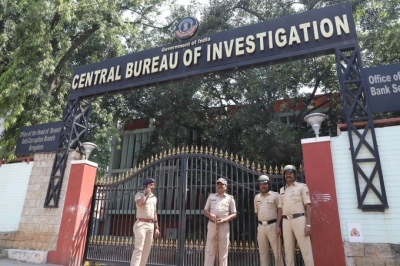New Delhi: The Central Bureau of Investigation (CBI) is being criticised for its reputation as a “drain inspector.” The agency has increasingly focused on investigating small fish, while larger corruption cases are being handled by the Enforcement Directorate, which is equipped with the Prevention of Money Laundering Act.
The CBI, which was once considered India’s premier anti-corruption agency, is now being seen as a poor cousin to the Enforcement Directorate. As cases move up the chain of command, the CBI’s investigations have been found to be lacking in quality, and the evidence presented in higher courts is often weak.
Critics argue that the CBI’s reputation has suffered due to its inability to effectively tackle high-profile corruption cases. The agency has been accused of being too politicized, and its leadership has come under scrutiny for their alleged lack of independence.
In contrast, the Enforcement Directorate has been hailed for its success in pursuing high-profile cases, particularly those related to money laundering. The agency has been able to secure strong convictions and hefty fines against individuals and companies found guilty of financial wrongdoing.
The CBI’s decline in reputation is a concern for India, as corruption remains a major issue in the country. Without a strong and independent anti-corruption agency, the fight against corruption may falter, leading to further harm to the country’s economy and reputation.
The Central Vigilance Commission (CVC) report released in August 2022 stated that as on December 31, 2021, a total of 6,700 corruption cases probed by the CBI were pending trial in different courts, 275 of them for more than 20 years.
A total of 1,939 cases were pending trial for more than 10 years and up to 20 years, 2,273 for more than five years and up to 10 years, 811 for more than three years and up to five years and 1,399 cases for less than three years, it said.
“The Commission, during monthly meetings with CBI, takes note of the large number of cases pending trial in different courts for long periods,” said the CVC annual report.
As on December 31, 2021, 6,697 cases were pending trial, out of which 275 cases are more than 20 years old, it said.
Besides, a total of 10,974 appeals and revisions were pending in the high courts and the Supreme Court.
Of the total of 9,935 appeals, 9,698 were in the high courts and 237 in the Supreme Court. There are 1,039 revision pleas pending in the high courts, the report stated.
However, last week on Thursday, Minister of State for Personnel, Public Grievances and Pensions, Jitendra Singh, said in a written reply in the Lok Sabha that the CBI’s conviction rate has gone up to 74.59 per cent in 2022 from 68 per cent in 2018.
The CBI’s conviction rate was at 68 per cent in 2018, 69.19 per cent in 2019, 69.83 per cent in 2020, 67.56 per cent in 2021 and 74.59 per cent in 2022.
The directorate of prosecution in the CBI, with the assistance of additional legal advisers, deputy legal advisers, senior public prosecutors, public prosecutors and assistant public prosecutors, is responsible for conducting and supervising cases pending trial, appeal and revision in the courts, he said.
According to the minister, there are sub directorates of prosecution in Delhi, Mumbai, Kolkata and Chennai, which closely monitor trial, appeal or revision petitions in the trial courts or the high courts.
The CBI’s strategy for improving the conviction rate involves conducting investigations with the help of legal support to collect and present the best possible evidence in court. The agency also emphasizes meticulous follow-up during trials to present evidence in the most effective manner, as well as enhancing their capabilities in terms of skills, resources and coordination, Singh stated.
On April 3 in reply to question in the Lok Sabha, Singh had said that the CBI has registered 110 cases against 166 civil service officers since 2018.
This information was shared in response to a query on the number of civil service officers accused of corruption in the last five years.
–IANS


Comments are closed.